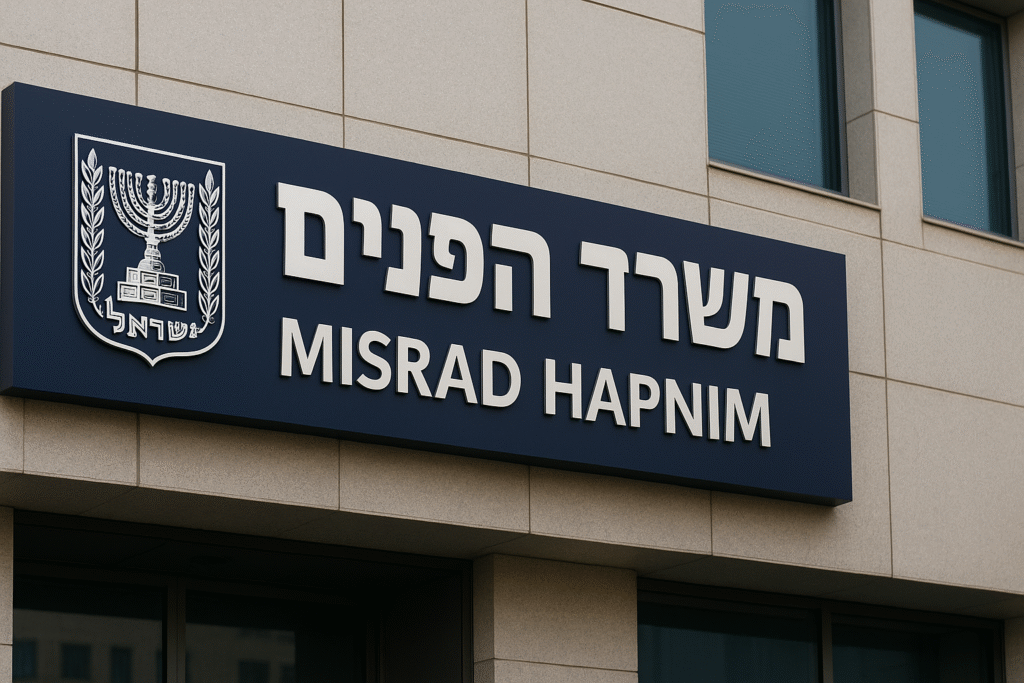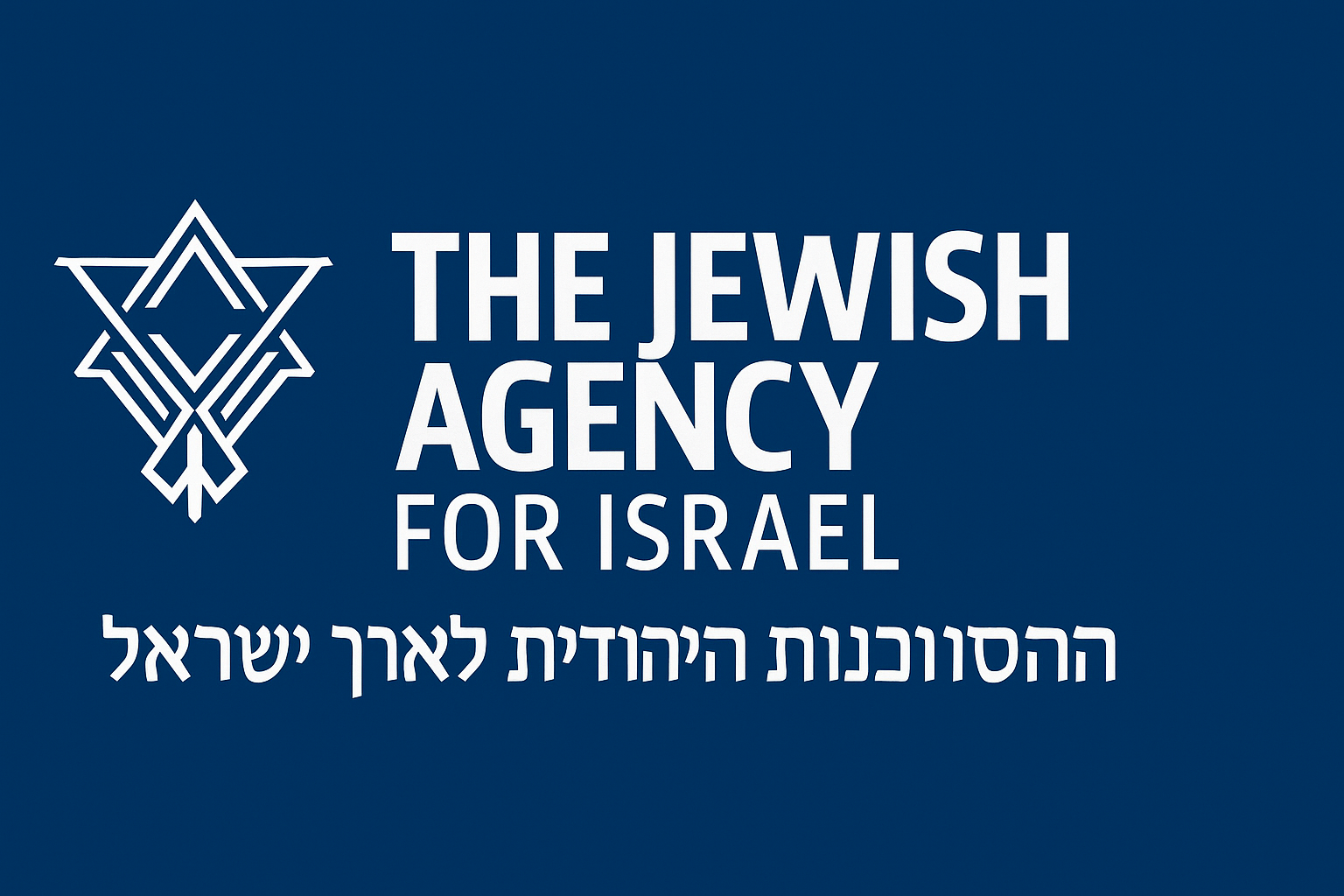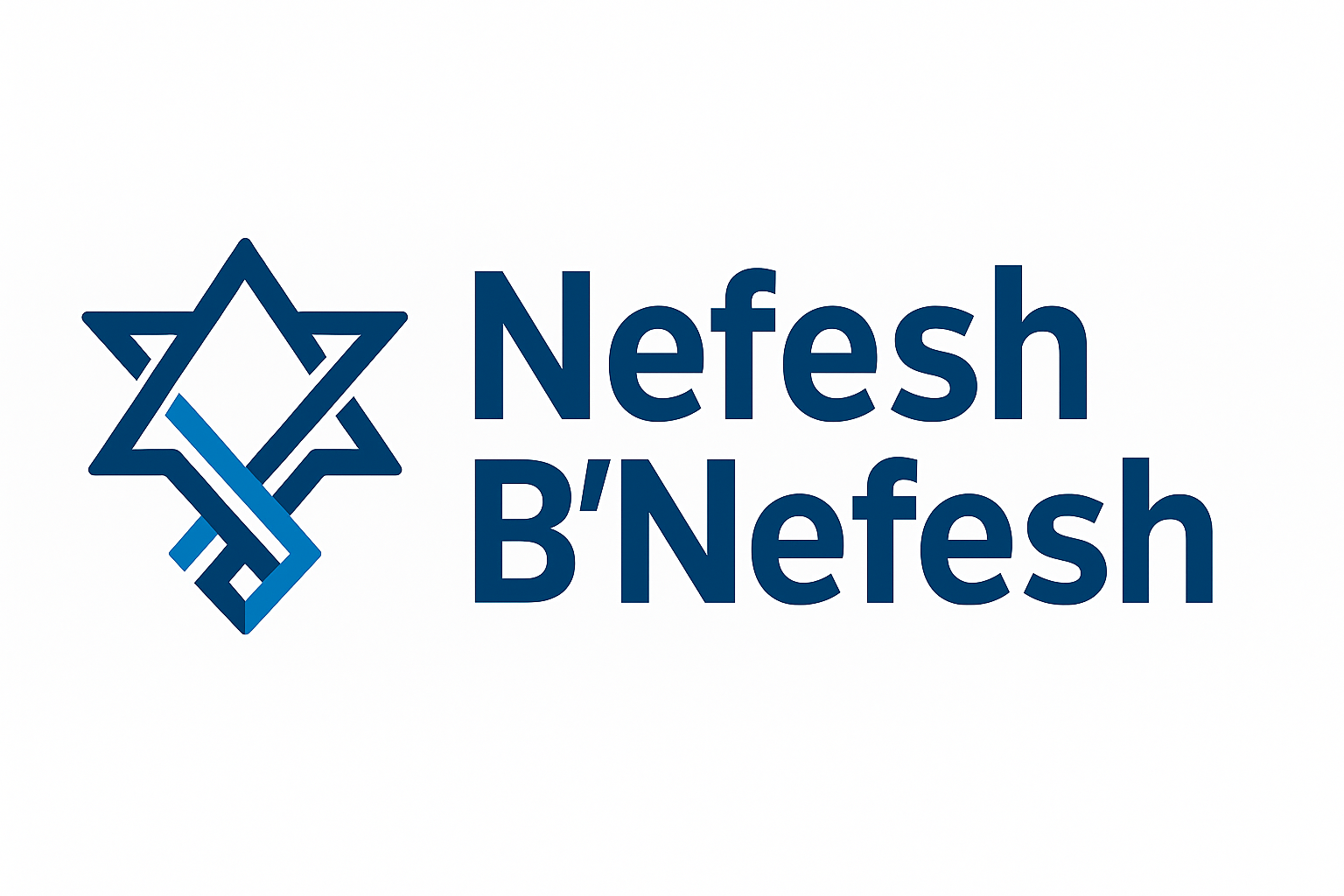Introduction: The Gateway to Israeli Citizenship
The Ministry of Interior (Misrad Hapnim in Hebrew) is one of the most significant government offices you’ll encounter during your Aliyah journey. While organizations like the Jewish Agency and Nefesh B’Nefesh facilitate the initial application process, Misrad Hapnim holds the ultimate authority over immigration matters, citizenship grants, and population registration in Israel.
Understanding how this ministry functions, what services it provides, and how to navigate its procedures efficiently can significantly smooth your transition to life as an Israeli citizen. This guide explains the essential role Misrad Hapnim plays in your Aliyah process and provides practical advice for interacting with this key government office.
The Ministry’s Structure and Functions
Primary Responsibilities
Misrad Hapnim serves multiple critical functions in Israeli society:
- Immigration and Citizenship: Processing Aliyah applications, granting citizenship, and issuing immigration certificates
- Population Registration: Maintaining the national population registry, including vital records (birth, marriage, death)
- Identity Documentation: Issuing teudat zehut (Israeli ID cards) and travel documents
- Border Control and Entry: Overseeing entry permissions, visas, and border crossing protocols
- Local Government Oversight: Supervising municipal authorities throughout Israel
- Emergency Services: Managing the fire and rescue services
For new immigrants, the Population and Immigration Authority (PIBA) is the most relevant division within the ministry.
Organizational Structure
Misrad Hapnim operates through:
- Central Headquarters in Jerusalem: Sets policy and oversees operations
- District Offices in major cities: Handle most citizen services and complex cases
- Regional Branches in smaller localities: Provide basic services
- Border Control Units at entry points: Process incoming immigrants and visitors
- Population Registry Departments: Maintain official records
The Misrad Hapnim’s Role in Your Aliyah Journey
Pre-Arrival Involvement
Before you arrive in Israel, Misrad Hapnim:
- Reviews and approves Aliyah applications forwarded by the Jewish Agency
- Conducts security and background checks
- Makes final determinations on eligibility under the Law of Return
- Authorizes the issuance of Aliyah visas by Israeli consulates
- Prepares for your absorption into the population registry
At Ben Gurion Airport
Upon your arrival at Ben Gurion Airport, representatives of Misrad Hapnim:
- Verify your Aliyah visa and documentation
- Issue your Teudat Oleh (immigrant certificate)
- Complete initial registration in the population database
- Provide your temporary identity slip (until you receive your teudat zehut)
- Give instructions for visiting your local ministry office
Post-Arrival Services
After settling in Israel, you’ll visit Misrad Hapnim to:
- Apply for and receive your teudat zehut (Israeli ID card)
- Register your current address
- Update your personal status information
- Obtain your first Israeli passport (after receiving citizenship)
- Request various certificates and official documents
Essential Interactions with Misrad Hapnim
Obtaining Your Teudat Zehut (Israeli ID Card)
One of your first and most crucial interactions with Misrad Hapnim will be receiving your teudat zehut, Israel’s national identity card:
Timeline: Within 3 months of arrival Required Documents:
- Teudat Oleh (immigrant certificate)
- Foreign passport with Aliyah visa
- Birth certificate
- Marriage certificate (if applicable)
- Proof of address in Israel
- Passport photos
The Process:
- Schedule an appointment at your local Misrad Hapnim office
- Bring all original documents and photocopies
- Complete the application form
- Have your photograph and fingerprints taken
- Receive a temporary paper ID while the biometric card is produced
- Return to collect your permanent ID card (usually within 2-3 weeks)
Key Facts About Teudat Zehut:
- Serves as the primary identification document in Israel
- Contains your identity number (mispar zehut) used for virtually all official matters
- Required for opening bank accounts, receiving healthcare, and most official transactions
- Must be updated when your address or personal status changes
Changing or Registering Your Address
Whenever you move within Israel, you must update your address at Misrad Hapnim:
Timeline: Within 30 days of moving Required Documents:
- Your teudat zehut
- Rental contract or property ownership documents
- Utility bill at the new address
- Arnona (municipal tax) registration
The Process:
- Visit your local Misrad Hapnim office (appointments recommended)
- Complete the change of address form
- Present your documentation
- Receive an updated address record in your teudat zehut
Obtaining Your First Israeli Passport
As a new citizen, you’ll need to apply for an Israeli passport:
Timeline: Can apply immediately after receiving citizenship Required Documents:
- Teudat zehut
- Teudat Oleh
- Foreign passport
- Passport photos
- Payment for passport fees
The Process:
- Schedule an appointment at Misrad Hapnim
- Submit your documentation and payment
- Provide biometric data (photo and fingerprints)
- Receive your passport (express processing available for additional fee)
Registering Life Events
Misrad Hapnim maintains official records of major life events:
Birth Registration:
- Must register within 15 days of birth
- Requires hospital birth notification and parents’ IDs
Marriage Registration:
- Register religious marriages performed in Israel through religious authorities
- Register foreign marriages by presenting original marriage certificates
Divorce Registration:
- Register religious divorces through religious authorities
- Register foreign divorces with court validation
Death Registration:
- Typically handled by the burial society
- Death certificate issued by Misrad Hapnim
Navigating Bureaucratic Challenges
Common Difficulties and Solutions
Challenge: Long Wait Times
Solutions:
- Schedule appointments in advance online when possible
- Arrive early in the morning (before opening)
- Consider offices in smaller towns which may be less crowded
- Bring reading materials or work to do while waiting
Challenge: Language Barriers
Solutions:
- Bring a Hebrew-speaking friend if possible
- Use translation apps on your phone
- Request an English-speaking clerk (available in many offices)
- Prepare key phrases in Hebrew related to your needs
- Bring written notes in Hebrew explaining your request
Challenge: Document Requirements
Solutions:
- Call ahead to confirm exact requirements
- Bring original documents AND photocopies
- Have documents translated if required
- Bring more documentation than you think necessary
- Consider using a professional service for complex cases
Challenge: Varying Procedures
Solutions:
- Check the official Misrad Hapnim website before visiting
- Join online forums where olim share recent experiences
- Consult with your absorption counselor from your Aliyah organization
- Be prepared to be flexible if requirements differ from expectations
Helpful Resources
- Official Website: www.gov.il/en/departments/population_and_immigration_authority (Has English version)
- National Information Call Center: *3450 from Israel or +972-2-6294666 from abroad
- Online Appointment Scheduling: Through the MyVisit app or website
- Service Guide: Available in multiple languages at most offices
Regional Offices and Contact Information
Major District Offices
Jerusalem District
Address: 1 Shlomtzion HaMalka St., Jerusalem Hours: Sun, Mon, Tue, Thu: 8:00-12:00; Wed: 13:30-17:30 Tel: 02-6294666
Tel Aviv District
Address: 125 Derech Menachem Begin, Tel Aviv Hours: Sun, Mon, Tue, Thu: 8:00-12:00; Wed: 13:30-17:30 Tel: 03-5138080
Haifa District
Address: 15 HaPalyam Blvd., Haifa Hours: Sun, Mon, Tue, Thu: 8:00-12:00; Wed: 13:30-17:30 Tel: 04-8601900
Be’er Sheva District
Address: 4 HaTikva St., Be’er Sheva Hours: Sun, Mon, Tue, Thu: 8:00-12:00; Wed: 13:30-17:30 Tel: 08-6383888
Branch Office Locator
To find the branch office nearest to your residence, use the office locator on the ministry’s website: Office Locator Tool
Special Considerations for Olim
First-Year Benefits
As a new immigrant, you’ll receive:
- Simplified procedures for first-time services
- Fee reductions or exemptions for certain services
- Access to specialized clerks for immigrant needs
- Multilingual assistance in some locations
Family Reunification
If you’re making Aliyah first with family members following later:
- Request information about the family reunification process
- Understand documentation requirements for family members
- Begin the process as early as possible due to potentially lengthy processing times
Name Changes or Hebraization
Many immigrants choose to adopt Hebrew names or standardize the spelling of their names:
- This can be done during your initial absorption
- Subsequent name changes involve a more complex process
- Consider carefully before finalizing, as your name will appear on all official documents
Strategic Tips for Efficient Interactions
Preparing for Your Visit
- Documentation Checklist: Create a personalized checklist based on official requirements
- Timing Strategy: Early morning (before opening) typically means shorter waits
- Appointment Booking: Use the MyVisit app to schedule appointments when possible
- Language Preparation: Prepare key phrases or written requests in Hebrew
- Support System: Bring a Hebrew-speaking friend or use an immigrant assistance service
During Your Visit
- Patience: Approach the experience with realistic expectations about wait times
- Politeness: Courteous interaction with clerks can significantly improve your experience
- Organization: Have documents organized and readily accessible
- Clarity: Be specific about your needs and requests
- Verification: Before leaving, verify that everything has been processed correctly
After Your Visit
- Document Storage: Keep all issued documents in a secure, organized location
- Follow-Up Actions: Complete any additional steps recommended by the clerk
- Calendar Reminders: Set reminders for document renewals or required updates
- Experience Sharing: Share your experience with fellow olim to help others
Changes and Modernization
Misrad Hapnim has undergone significant modernization in recent years:
Digital Transformation
- Online appointment scheduling
- Digital form submission for some services
- SMS notifications for application status
- Expanded website information in multiple languages
Service Improvements
- Extended hours in some locations
- Separate queues for different services
- Dedicated services for new immigrants
- Improved physical facilities
Future Developments
- Increased online service options
- More efficient biometric processing
- Expanded mobile service units
- Further integration with other government services
Conclusion: Building Your Relationship with Misrad Hapnim
Your interactions with Misrad Hapnim represent more than just bureaucratic necessities—they are fundamental steps in establishing your legal identity as an Israeli citizen. While navigating government offices can sometimes be challenging, understanding the ministry’s processes and approaching them with preparation and patience can significantly improve your experience.
Remember that as an oleh chadash (new immigrant), you’re entitled to specific assistance and consideration. Don’t hesitate to identify yourself as a new immigrant and ask for help when needed. Many offices have staff specifically designated to assist olim with their unique needs.
Over time, you’ll become more familiar with Israeli bureaucratic processes, and what might seem overwhelming during your first visits will eventually become routine. Your relationship with Misrad Hapnim will continue throughout your life in Israel, from passport renewals to registering life events, so developing effective strategies for interacting with this essential ministry is a valuable investment in your successful absorption into Israeli society.
By approaching these interactions with preparation, understanding, and a positive attitude, you can navigate this crucial aspect of your Aliyah journey successfully and focus on the more rewarding aspects of building your new life in Israel.


